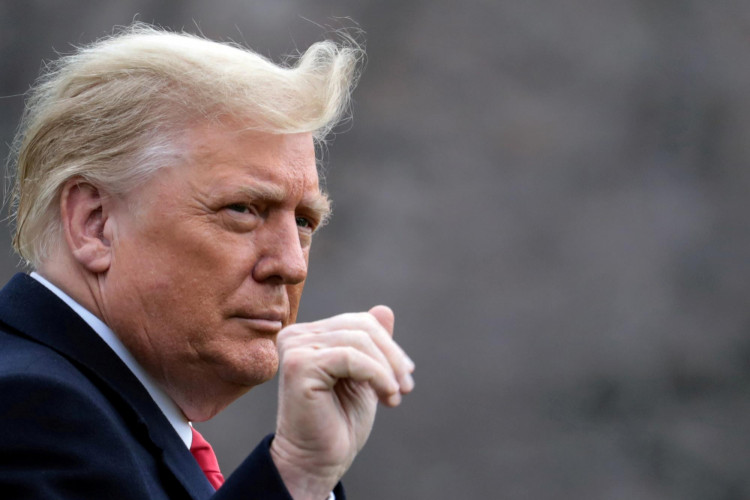The Georgia Court of Appeals has indefinitely paused proceedings in the high-profile 2020 election interference case against former President Donald Trump and his co-defendants. This move marks a substantial setback for Fulton County District Attorney Fani Willis, whose sweeping indictment of Trump now faces delays likely extending beyond the 2024 presidential election.
The appeals court has scheduled a tentative hearing for October 4 to consider the appeal by Trump and his co-defendants to disqualify Willis from the case. This appeal is rooted in allegations of an "improper" affair between Willis and former special prosecutor Nathan Wade, which Trump's defense argues compromises the integrity of the prosecution.
Steve Sadow, Trump's lead defense counsel, stated, "The Georgia Court of Appeals has properly stayed all proceedings against President Trump in the trial court pending its decision on our interlocutory appeal which argues the case should be dismissed and Fulton County DA Willis should be disqualified for her misconduct."
The pause means that Willis' ambitious racketeering case against Trump, which includes charges of violating the Georgia RICO Act, conspiracy, and filing false documents, will not see a courtroom before the upcoming election. Trump, who was indicted along with 18 co-defendants in August, has consistently sought to delay legal proceedings until after the election, a strategy that appears to be yielding results.
The allegations against Willis stem from claims made by Michael Roman, a GOP operative and co-defendant, who accused Willis of having a romantic relationship with Wade. These accusations included claims that Willis and Wade took lavish vacations together, benefiting financially from their association. Both Willis and Wade have denied any impropriety, with Willis stating that any shared expenses were reimbursed in cash.
In March, Fulton Superior Court Judge Scott McAfee dismissed six charges against Trump and noted that while Willis' reimbursement practices were "unusual," there was insufficient evidence to prove financial misconduct. McAfee's decision allowed proceedings to continue only if Wade stepped down, which he subsequently did.
The legal battle over Willis' role has not only stalled the case but has also drawn intense media scrutiny, shifting focus from the charges against Trump to the DA's personal life. This development underscores Trump's strategy of putting prosecutors on the defensive and challenging their credibility both in the courtroom and the public sphere.
As the appeals court considers the disqualification appeal, Willis faces additional challenges. She is under investigation by two committees in the Georgia legislature for alleged misuse of federal funds. Furthermore, Willis, who recently won her Democratic primary, will face a GOP challenger in the upcoming general election.
Meanwhile, Trump's legal maneuvers extend beyond Georgia. In Florida, where he faces charges related to classified documents, U.S. District Judge Aileen Cannon has shown a willingness to entertain Trump's requests to challenge investigators and prosecutors. This has led to delays and the prospect of further hearings, with no trial date set.
The appeals court's decision to pause the Georgia case is the latest in a series of legal victories for Trump, who continues to assert his innocence and denounce the investigations as politically motivated. His defense team is leveraging every available legal avenue to delay proceedings, potentially until after the 2024 election.
The implications of these delays are profound. Should Trump secure the GOP nomination and potentially win the presidency, the legal landscape surrounding these cases could shift dramatically. The delays also highlight the challenges prosecutors face in high-stakes political cases, where legal strategy often intertwines with public perception and political maneuvering.
In the wake of the appeals court decision, reactions have been polarized. Supporters of Willis argue that the delays hinder justice and allow Trump to evade accountability. Critics, however, view the pause as a necessary check on what they perceive as prosecutorial overreach.






